Modules Available
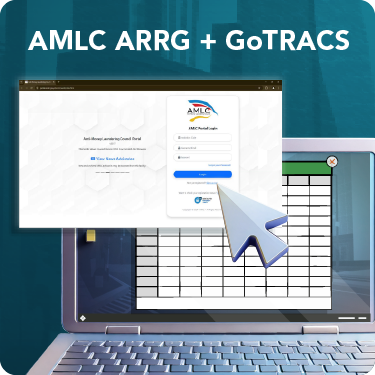
AMLC Registration and Reporting Guidelines (ARRG) Module
The AMLC Registration and Reporting Guidelines (ARRG) module is an e-learning module focused on guiding Covered Persons through the proper registration and reporting processes with the Anti-Money Laundering Council (AMLC). This module explains how to comply with AMLC regulations, including the steps for registering institutions, filing Covered and Suspicious Transaction Reports (CTRs/STRs), and meeting other reporting obligations. Taking this ARRG training helps ensure that organizations stay compliant with anti-money laundering laws and maintain transparency in financial transactions.
Duration: 45 minutes

AML/CFT Essentials for Real Estate Module
This module contents are particularly curated with practical AML/CFT key concepts for real estate brokers and developers to maximize their capabilities in addressing money laundering and terrorist financing threats in their businesses. Part of this module is dedicated to informing the learners of the common schemes criminals use to launder money involving real properties, which aims to improve their skills in preventing these crimes.
Duration: 60 minutes
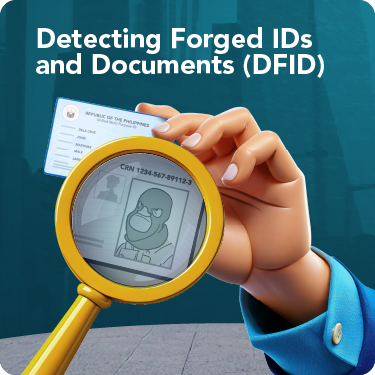
Detecting Forged IDs and Documents (DFID)
This is an overview course that discusses steps to verify customer details – whether in-person or with the use of technology - and at the same time enable you to meet various statutory obligations. You will also learn key concepts like identity and due diligence.
Duration: 60 minutes

AML/CFT Casino Implementing Rules and Regulations (CIRR)
In this module, you will learn about R.A. NO. 10927 and Casino Implementing Rules & Regulations (CIRR) through several featured rules, carefully selected based on their significance and impact on covered persons. The knowledge you will gain here will not only serve to familiarize you with the Casino IRR but can also serve as a springboard to a more detailed study of the law.
Duration: 60 minutes
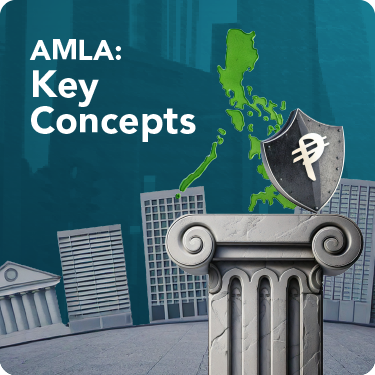
AML/CFT Key Concepts
Money laundering and the financing of terrorism are financial crimes with serious effects on our country's economy, the government, and even our social well-being – as citizens. This module will introduce you to the Anti-Money Laundering Act (AMLA), and will help you understand that AMLA is not just a law to be followed; but it is also established to protect you. Also provided in this module are key updates based on the 2021 and 2022 amendments to AMLA, such as additional covered persons and their transactional thresholds and new unlawful activities.
Duration: 50 minutes
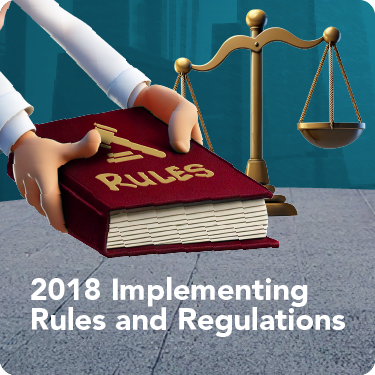
AMLA 2018 IRR: Implementing Rules and Regulations
This module will present several featured rules of the 2018 Implementing Rules and Regulations (IRR) of R.A. No. 9160 Otherwise Known as the AML Act of 2001, as Amended, carefully selected based on their significance and impact on covered persons. Recent years’ essential updates to the IRR can also be found among the topics in this module, including January 2021 Amendments that highlight strengthening of AMLC’s power and functions and the requirement for covered persons to always keep their CDD records updated.
Duration: 40 minutes
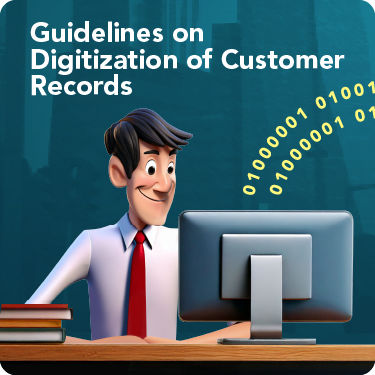
AMLA GDCR: Guidelines on the Digitization of Customer Records
This module aims to provide learners the salient Guidelines on the Digitization of Customer Records. The AMLC issued AMLC Regulatory Issuance (ARI) A, B, and C, No. 2, series of 2018 regarding Guidelines on Digitization of Customer Records. This new set of guidelines mandates the digitization of customer records in all banks, insurance companies, and other covered persons under the Republic Act (RA) No. 9160 or the Anti-Money Laundering Act of 2001, as amended (AMLA). Relevant topics in succeeding ARIs are also posted in this module, including details on QUADSREC and the exception of MSBs (money service businesses).
Duration: 20 minutes
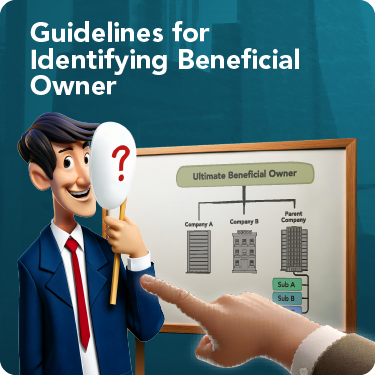
AMLA GIBO: Guidelines on Identifying Beneficial Ownership
In many well-publicized cases, criminal elements and a number of high-ranking public figures have used dummies, including non-governmental organizations (NGOs), and individuals, to hide their identities. This module will provide guidelines that will help financial institutions identify and verify who their customers really are and where their funding originates from with the ultimate goal of preventing money laundering and terrorist financing (ML/TF). It will also keep you updated on vital advisories and information related to beneficial ownership based on recent amendments to the AMLA and relevant laws.
Duration: 30 minutes
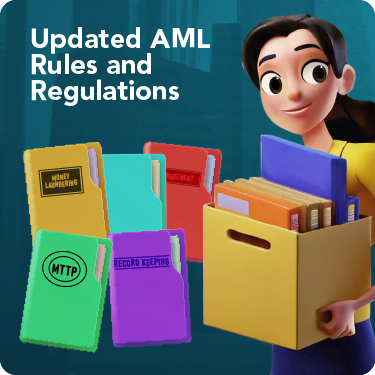
AMLA UARR: Updated AML Rules and Regulations
Volume 1:
This module defines money laundering and the basic policies to combat it. It also recognizes the importance of Risk Management and Internal Audit in preventing money laundering schemes.
Duration: 45 minutes
Volume 2:
This module identifies the four basic AML areas and the types of Due Diligence required for the customers’ corresponding risk profiles. It also provides discussions for the process of filing Covered and Suspicious Transaction Report, BSP Authority and Enforcement Actions, Sanctions, and Penalties. Updates to several featured rules of AMLA are also included in this module, and among them are AMLC’s suggested MTPP outline and the crucial topic of TFS, or Targeted Financial Sanctions.
Duration: 80 minutes
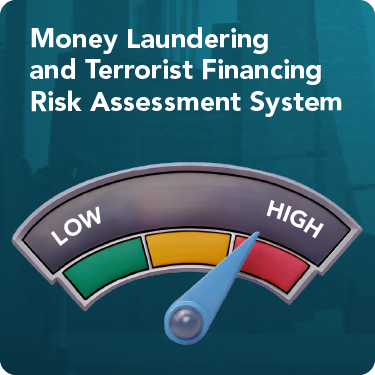
AMLA MRAS: Money Laundering/Terrorist Financing Risk Assessment System
This module will help you understand Money Laundering/Terrorist Financing Risk Assessment System (MRAS). MRAS is part of the BSP’s ongoing efforts to strengthen the financial system’s safeguards against money laundering (ML) and terrorist financing (TF). As a covered financial institution, you are required to thoroughly review and comprehend this training.
Duration: 30 minutes
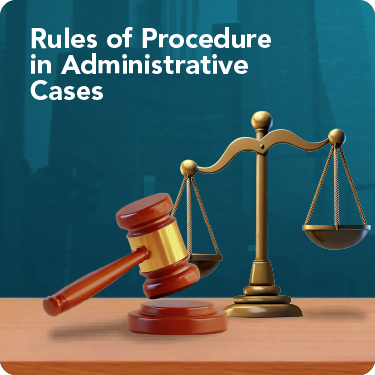
AMLA RPAC: Rules of Procedure in Administrative Cases
The Rules of Procedure in Administrative Cases (RPAC) is used to protect and preserve the integrity and confidentiality of bank accounts and also ensures that the Philippines will not be used for money laundering. In this module, you will learn that the Rules of Procedure in Administrative Cases (RPAC) is intended to apply to administrative cases for non-compliance, or violations of the AMLA (as amended) and its implementing rules and regulations and will include the guidelines and issuances of the AMLC. This module also now includes recent updates to the law such as the AMLC Enforcement Action Guidelines.
Duration: 20 minutes
